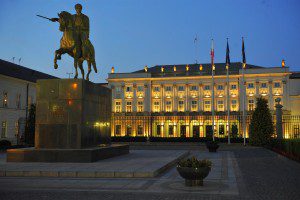By PolskaViva
 Analysing what happened last Sunday in the Polish presidential elections and trying to anticipate what might happen in two weeks’ time, there are clearly two different interpretations. On the one hand, the partial victory of Andrzej Duda reveals significant wear and tear in the Civic Platform currently in power – and of Komorowski as President – clear evidence that the belligerent policy towards Russia, the openness towards Europe and the commitment to radical free market policies have failed to convince the electorate, in contrast to the Law and Justice Party’s stance on Catholicism, safeguarding traditions, social policies and aid for families.
Analysing what happened last Sunday in the Polish presidential elections and trying to anticipate what might happen in two weeks’ time, there are clearly two different interpretations. On the one hand, the partial victory of Andrzej Duda reveals significant wear and tear in the Civic Platform currently in power – and of Komorowski as President – clear evidence that the belligerent policy towards Russia, the openness towards Europe and the commitment to radical free market policies have failed to convince the electorate, in contrast to the Law and Justice Party’s stance on Catholicism, safeguarding traditions, social policies and aid for families.
Furthermore, the rise of Pawel Kukiz, a musician and non-party independent, as the third most voted option (20%) appear to place Poland fairly and squarely in the European mainstream of new politicians, new discourse, and the desire for change – which is what’s happening in Greece and Spain. However, given the profile of those who voted for Kukiz, it doesn’t seems too risky to think that in the second round a considerable number of these votes might go to Komorowski, at least more than to Duda.
So, the delight on Sunday 10 May at the headquarters of the Law and Justice Party may well turn into disappointment in two weeks’ time, unless Komorowski manages to produce another surprise: according to the polls and pre-vote surveys on Sunday, Komorowski was first in line. “Change in Poland begins with the change in presidency,” said Duda to his excited followers. So, Duda should seek the support of some of the defeated candidates to try to beat the current president yet again.
And don’t forget that within a few months, probably in October, parliamentary elections will be held, so a defeat for Komorowski in the second round could have consequences for the Prime Minister, Ewa Kopacz. Moreover, in Poland, the post of President is not merely representative: it has broad powers and can block laws with its veto while pushing forward others of its own – a stalemate between Duda and Kopacz which could hinder the political functioning of the country, as has happened in the past.
Note: This article was originally published in PolskaViva.

